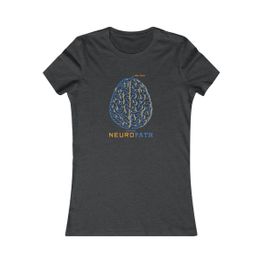Role Of Choroid Plexus Protein Klotho In Aging
Inflammaging, describes the increase in an inflammatory alteration in the brain, due to aging and predicts the morbidity and mortality in older humans. To understand the origins, scientists have focused on studying the Choroid Plexus, a gateway at the interface between the brain and immune system.
The choroid plexus (CP), a network of cells that produces cerebrospinal fluid (CSF) in the ventricles of the brain. Four ventricles have one each of the CP. CP generates Klotho, is the only reported antiaging gene, that has shown premature aging in mice when mutated. The hormone is secreted into CSF and influences the premature cell senescence in humans and mice. While klotho-deficient mice showed symptoms similar to accelerated human aging and displayed arteriosclerosis, overexpression of klotho might increase average lifespan between 19-31% in normal mice.
Image Credit: Takahashi et al., PNAS 2000
Apart from the CP, Klotho is also produced in the kidney, and it regulates the vitamin D metabolism. The accelerated aging behavior in the absence of Klotho was attributed to the klotho-associated vitamin D metabolic abnormalities. So, what role does klotho play in the CP?
Researchers from Gladstone Institute of Neurological Disease, with Dr. Lennart Mucke, Director, and Senior Investigator as senior author, have studied the role of klotho particularly in the CP and their findings were published in the scientific journal PNAS. The results identified the role of klotho as a gatekeeper, that protects the brain from the peripheral the immune system.
Klotho reduction increased the expression of the major histocompatibility complex class II (MHC II) protein, whose expression is previously reported to increase with age. Further, from genetically modified mice model studies, the study also confirmed an increase in interferon-related gene products when Klotho expression is reduced. The interferon-related genes modulate the MHC-II expression.
"We discovered, in mouse models, that klotho levels in the choroid plexus naturally decrease with age," said Mucke. "We then mimicked this aging process by reducing levels of klotho in this structure experimentally, and we found that depleting this molecule increases brain inflammation."
"The barrier between the brain and the immune system seems to break down with low levels of klotho," said Lei Zhu, a scientist in Mucke's laboratory and first author of the study. "Our findings indicate that klotho helps keep that barrier closed. When levels of this molecule are depleted in the choroid plexus, the barrier becomes more porous and allows immune cells and inflammatory molecules to get through more easily."
To further understand, the signaling mechanisms by which Klotho suppresses activation of the macrophages, in vitro cell culture assays were investigated. "The molecular changes we observed in our study suggest that klotho depletion from the choroid plexus might contribute to cognitive decline in elderly people through brain 'inflammaging,'" added Mucke, who is also a professor of neurology and neuroscience at UC San Francisco.
"It could help explain, at least in part, why we often notice deteriorations in cognitive functions in hospitalized seniors when they have infections, such as pneumonia or urinary tract infections. This complication tends to be particularly prominent in patients with Alzheimer's disease, in which inflammation has emerged as a major driver of pathology."
The research provides strong support to the detrimental effects of klotho reduction with aging, the next task at hand is to see if aging or aging-related cognitive changes can be reversed or suppressed by increasing klotho levels in CP. This particular question is what Mucke’s group are planning to tackle next. If proven, this would be a groundbreaking finding that would open up potential possibilities for disease treatments and improving longevity in the aging population. The age-aging pill might be a question of “when” than “if.”
To know more about klotho and its polymorphisms associated with aging, see the video below, a sens research foundation systematic review
Sources: PNAS, AAAS and EurekAlert!, sens research foundation
-
MAY 07, 2024Is It Anti-RNP or Anti-Sm/RNP?
- See More
-
APR 30, 2024Immuno-Oncology Virtual Event Series 2024
-
MAY 07, 20243rd International Biosecurity Virtual Symposium
-
JUN 06, 2024The Future of Scientific Conferencing
- See More


















































